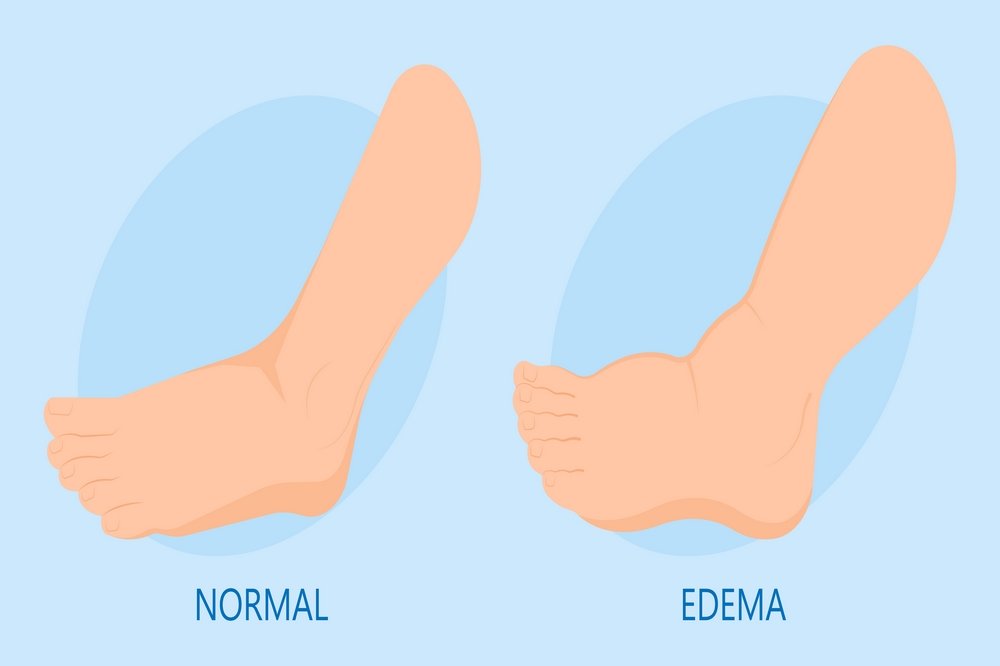Protein deficiency symptoms

Protein deficiency occurs when people do not receive adequate amounts of protein from the foods they take. Although protein deficiency is not that common to occur but is seen in people residing in the developing countries. Children specifically suffer from the most severe form of protein deficiency known as kwashiorkor. (13)
Edema
Edema is the state which characterizes as puffiness and swelling of skin and is known as the classic symptom of kwashiorkor. Doctors believe that edema results due to low levels of human serum albumin, a protein which is present most abundantly in the blood plasma. One of the major functions of albumin is to regulate the oncotic pressure, a force that pushes fluid into the circulating blood. By drawing fluid into the blood circulation, albumin avoids excessive amounts of fluid from gathering in tissues or other body parts.
Due to lower serum albumin levels severe deficiency of protein result in reduce oncotic pressure. Therefore, fluid starts to accumulate in body tissues leading to inflammation. Protein deficiency might also lead to the buildup of fluid inside the abdominal cavity due to subsequent reduction in the oncotic pressure. Bloating of belly is the classic signs of kwashiorkor. In addition, it is important to keep in mind that edema is one of the symptoms of severe protein deficiency and it is unlikely to develop in people living in under-developed countries.
